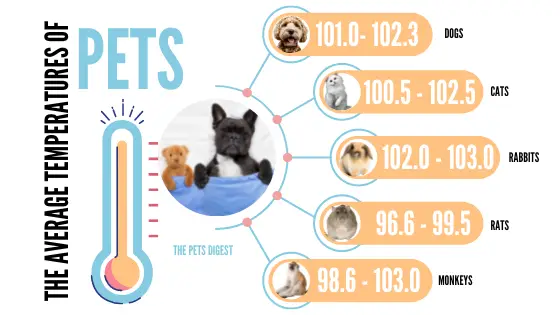Update: August 13, 2022
Since May 2022 there have been over 3,000 cases of monkeypox identified outside of endemic regions, with 156 cases identified in the United States. With the rise of the virus and many pet owners being aware that cats and dogs can acquire many of the same diseases and infections as humans, people are wondering if their cat or dog can possibly acquire and spread the monkeypox virus.
Monkeypox is a communicable disease caused by the monkeypox virus that infects mammals and causes flu-like symptoms, fever, conjunctivitis, lymphadenopathy, coughing, and a widespread rash. While there have not been any known cases of monkeypox in cats and one in dogs scientists state that there is always a rare possibility since they are mammals.
While, the study below shows the rare case of a dog getting monkeypox, it is not known if cats and dogs can be carriers, as many animals can carry the virus without exhibiting signs of illness. More research into possible cases is needed to provide a definitive answer to the question of the probability of dogs and cats getting monkeypox disease as the full range of susceptible species is still a mystery.

However, while there have not been many cases of monkeypox reported in cats and dogs all necessary precautions should still be taken if you suspect you or one of your other animals (rabbit, rat, squirrel) may have the disease.
How is Monkeypox spread?
While there is ongoing research it is said that monkeypox can be spread via direct contact with a wound, bodily fluids or aerosols.
In fact, most human cases are zoonotic, meaning they were infected by an animal.
Let’s look at how you would know that your rat or rabbit suffered from the disease.
Signs of Monkeypox in Pets
The most susceptible pets to monkeypox disease are non-human primates (monkeys), rodents (rats and mice), rabbits, and prairie dogs. Some animals may not have any symptoms and can pose the risk of being carriers.
In dogs, the disease presents as mucocutaneous lesions, pustules, and ulcerations on the skin but signs and symptoms of monkeypox vary with species but most will initially present with a fever and eventually, you may notice other signs such as:
- signs of an upper respiratory illness including cough and nasal discharge
- conjunctivitis
- lymphadenopathy (swelling of the lymph nodes)
- lack of appetite
- lethargy (extremely tired, not moving or interacting a lot)
- anorexia (severe weight loss from not eating)
- nodular rash
- Pustules
- Patchy alopecia
- In severe cases, pneumonia can develop
- Death has occurred in some infected animals but not all
It has been noted that the current outbreak of monkeypox has been mild and most animals that get the disease do not even show signs of an upper respiratory infection and limited skin lesions
So, what do you do if you think your pet may be infected with monkeypox?
What should I do if I suspect that my pet has monkeypox

If you know that your pet may have been exposed to monkeypox or suspect exposure, monitor them for the above signs of illness and contact your veterinarian or the public health veterinarian for your state. Here is a list of public health vets broken down by State. (do not go to the vet without first calling to let them know you suspect your pet may have monkeypox).
- Separate your pet from people in the home and other pets (do not release your pet into the wild)
- Clean and disinfect anything the animal may have come in contact with (as the virus can live on objects)
- To determine if your pet has a fever wear gloves and use a thermometer. While the most accurate route of getting a temperature is usually via an anal thermometer in this case using a skin or ear thermometer will work. Apply the skin thermometer to your pet’s abdomen where there is no fur and determine if he or she has a fever.
- Always wash your hands thoroughly with soap and water after handling your pet and wear gloves

Infected animals are said to be contagious 1 day before and up to 21 days after the initial symptoms appear, or until all skin lesions have scabbed over and there are no symptoms.
Can I give my pets monkeypox?
The first case of a possible monkeypox transmission to a dog from a human was documented in August of 2022 in Paris, France. The study was published in The Lancet, a peer-reviewed medical journal. The dog was a 4-year-old male Italian greyhound with no known illnesses or previous medical conditions. The dog developed symptoms approximately 12 days after their owner. (Source)
Since monkeypox is a zoonotic disease (meaning it can jump from human to animal and vice versa) there is always a chance that you can transmit the disease to your pets. This is especially true if you have one of the pets that are most susceptible to the disease, rodents, rabbits, or non-human primates.
If you are diagnosed with monkeypox you should self-isolate from other people and your pets if possible for at least 21 days.
Reference
- https://www.cdc.gov/poxvirus/monkeypox/veterinarian/examination.html
- https://www.cdc.gov/poxvirus/monkeypox/clinicians/faq.html
- http://publichealth.lacounty.gov/vet/docs/MonkeypoxFAQPetOwner.pdf
- Transmission of Monkeypox to a dog from a human
- The Lancet study: first case of transmission to a dog

























































































































